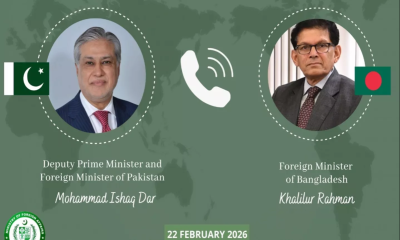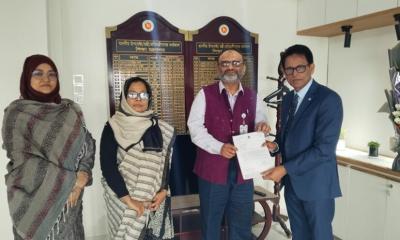Nobel laureate Dr. Muhammad Yunus has urged world leaders to unite and take immediate action to end the brutality of Israeli forces in Gaza.
Speaking at a special session of the D-8 Summit in Cairo, the Bangladeshi Chief Advisor reiterated his country’s unwavering support for a two-state solution to the Palestinian crisis.
Dr. Yunus made a passionate plea, saying, "We call upon all stakeholders, including those from outside the region, to take decisive and collective action to stop the ongoing brutality of Israeli forces."
During his speech, Dr. Yunus highlighted the horrific violence that Palestinians have been facing for over a year.
“We are gathering at a time when Israeli aggression and brutal genocide against the Palestinian people have continued for 14 months in the occupied Gaza Strip and the West Bank. This barbarity is beyond words. At the very least, Israel`s blatant disregard for long-established international norms, laws, and conventions has left us deeply disheartened.”
He warned that the conflict is now spreading into neighboring Lebanon, which could have disastrous effects on the entire region.
"This could lead to long-term consequences for peace and stability, not only affecting the economy but global society and politics as well," he said.
Expressing his solidarity with the Palestinians, Dr. Yunus said, “We reiterate our unity and unwavering commitment at this existential crisis in their history.”
He also emphasized Bangladesh’s long history of supporting the Palestinian cause.
“We have always condemned Israel`s ongoing illegal occupation and violent repression. We remain steadfast in our support for a fair and lasting solution, ensuring peaceful and harmonious coexistence between Israel and Palestine through a two-state solution.”
The 2006 Nobel Peace Prize winner further stressed that Palestine must emerge as a fully independent state based on the pre-1967 borders, with East Jerusalem as its capital.
"We have outlined this in detail before the International Court of Justice last February. The court eventually declared Israel`s occupation illegal in its opinion.”
Dr. Yunus also expressed deep concern among Bangladeshis regarding the situation, saying, "Palestinians cannot be disregarded. Every Palestinian life is valuable." He added, “This is not an issue that concerns only Muslims. It is a universal matter where human dignity is being tested. It is about the universal commitment to protecting the vulnerable. It is our moral duty to stand firmly with them.”
He pointed out that there are around six million Bangladeshi expatriates and migrant workers in the Middle East, including Lebanon, who play an important role in the development of these countries. Their safety, he noted, is now at risk.
The Chief Advisor also condemned the massacres in Gaza, the West Bank, and Lebanon, calling them clear violations of international law and acts of war crimes.
“The perpetrators must be held accountable. This is why, last November, Bangladesh called for an expedited investigation into heinous crimes against humanity before the International Criminal Court.”
He called for renewed efforts toward a two-state solution, emphasizing that accountability for such crimes could deter future atrocities.
“In addition to humanitarian intervention, it is time to prioritize rebuilding Gaza, the West Bank, and Lebanon.”
Dr. Yunus also cited a warning from the United Nations, which estimated that clearing the 40 million tons of rubble caused by Israeli bombings could take at least 15 years.
“We can imagine that more than 10,000 bodies may be trapped under the debris, which is also contaminated with asbestos,” he said.
Calling on D-8 leaders to estimate the costs of reconstruction, Dr. Yunus urged them to push for an international strategy to raise the necessary funds.
He praised Egypt for organizing this special session to address the humanitarian crisis and the challenges of rebuilding in Gaza and Lebanon.
Egyptian President Abdel Fattah el-Sisi was among those attending the session.


-20241220062000.jpg)

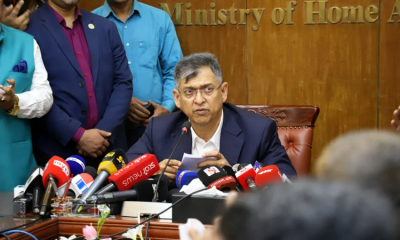
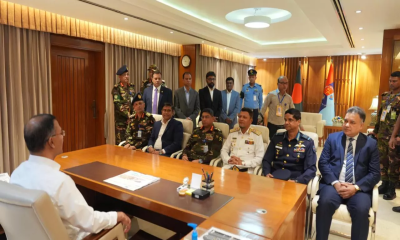

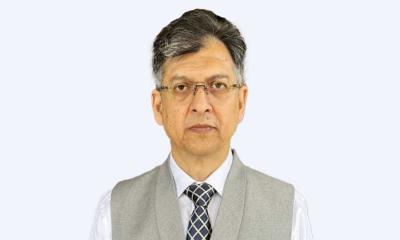
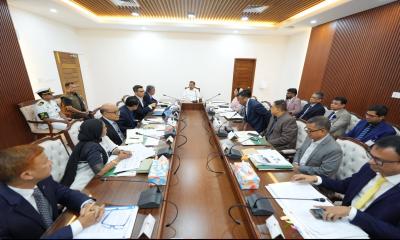
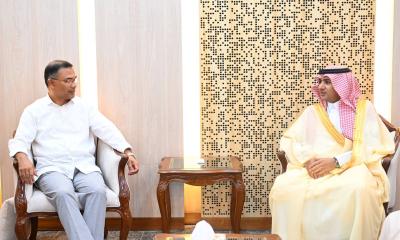
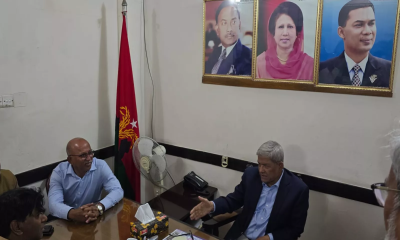
-20260223082704.webp)
-20260223074941.jpeg)
-20260223062301.jpg)


